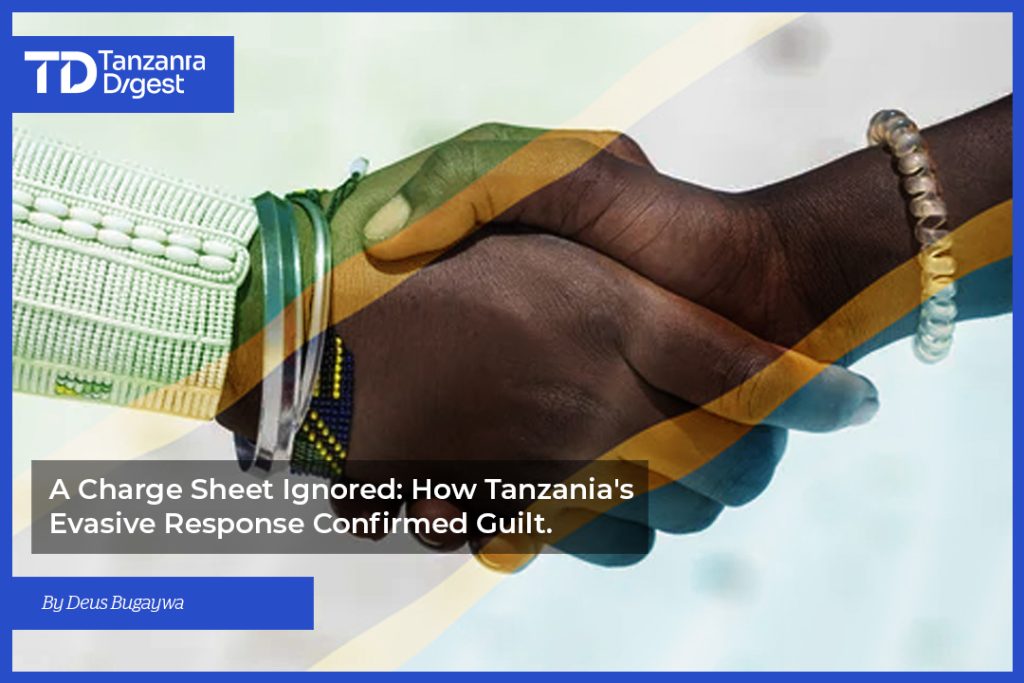In the wake of the recent post-election violence in Tanzania, a wave of uncertainty has swept across the nation. Amidst the calls for external intervention and scepticism towards domestic solutions, President Samia Suluhu Hassan has initiated a Commission of Inquiry to address the unrest that has shaken the country.
With prominent figures leading the commission, including the esteemed Judge Mohamed Othman Chande as Chairman, its in the best interest of Tanzania to put their faith in homegrown solutions rather than succumbing to the adage that “no prophet is accepted in his own country.”
The President’s address during the inauguration of the commission underscored the importance of self-reliance in resolving national issues. She acknowledged the heavy responsibility placed on the commission members and expressed confidence in their ability to fulfill their mandate. This trust in local expertise is not merely a political statement; it reflects a deep understanding of the historical context in which Tanzania operates. The nation has a rich legacy of political stability and security, and it is vital to leverage this strength during challenging times.
The importance of homegrown solutions
Historically, Tanzania has navigated political challenges with resilience and unity. The formation of the Commission of Inquiry is a testament to the government’s commitment to understanding the root causes of the recent violence. President Samia’s decision to prioritize an internal commission before seeking external assistance is a strategic move that emphasizes the need for Tanzanians to address their own problems.
The commission members bring a wealth of experience and credibility to this crucial task. Judge Mohamed Othman Chande, a respected figure in the legal community, is known for his integrity and commitment to justice. Alongside him are distinguished individuals such as Judge Prof. Juma Ibrahim, Lieutenant General Paul Meela, former Inspector General of Police Said Mwema, David Kapya, Stergomena Tax, and Radhia Msuya. Each member has a unique background that enriches the commission’s capability to analyse the events that unfolded during the elections and their aftermath.
Analysing the causes of unrest
The commission’s primary task is to investigate the underlying causes of the violence and the demands of the youth who took to the streets. In her speech, President Samia emphasized the need to understand what rights these young people felt were being denied. This inquiry is crucial not only for accountability but also for fostering a sense of belonging and trust among the citizenry.
Furthermore, the commission will examine the rhetoric from opposition parties if in any way fuelled discontent and unrest. By understanding the motivations behind their statements, we can foster a political environment that encourages dialogue and constructive debate rather than division and violence.
As Tanzanians, we must recognize that while external pressures and influences exist, the solutions to our problems must come from within. The commission’s work will help chart a path forward, one rooted in the realities and aspirations of the Tanzanian people.
Additionally, the commission will look into the involvement of civil society organizations, both domestic and international. There have been allegations that some youths were financially incentivized to protest, raising questions about the funding sources and motivations behind these actions. This investigation is necessary to ensure that our civil society operates transparently and in alignment with the interests of the people.
In light of these inquiries, it is essential for Tanzanians to engage with the commission’s findings and recommendations. The call for external commissions from entities such as the UN or AU, as mentioned by opposition members, reflects a lack of faith in our internal mechanisms. However, such scepticism undermines the potential of our own institutions to bring about meaningful change.
Embracing unity and reconciliation
President Samia’s commitment to reconciliation is clear. By establishing this commission, she aims to address the political challenges that have emerged and to foster a spirit of unity. The commission’s recommendations will guide future initiatives aimed at healing and rebuilding trust within the nation.
As Tanzanians, we must support this endeavor and recognize that healing begins with dialogue and understanding. The commission’s work is not merely about addressing past grievances; it is about laying the foundation for a more inclusive and harmonious future.
In her address, President Samia emphasized the importance of self-reliance and confidence in our domestic institutions. It is crucial for Tanzanians to rally behind the commission and trust in its findings. The expertise of the commission members provides a strong foundation for effective analysis and recommendations.
By engaging with the commission’s work, Tanzanians can contribute to a more stable and secure future. It is time to set aside the notion that external solutions are preferable and instead embrace the potential of our own homegrown responses. This is not just about faith in our institutions; it is about believing in ourselves as a nation capable of overcoming challenges.
In this critical moment, Tanzanians must recognize that the path to peace and stability lies within our own hands. The formation of the Commission of Inquiry represents a significant step towards understanding and addressing the recent violence that has impacted our society.
With the leadership of esteemed individuals like Judge Mohamed Othman Chande and his team, we have the opportunity to build a more cohesive and united nation. As we embark on this journey of inquiry and healing, let us place our trust in our homegrown solutions and work together to create a brighter future for all Tanzanians.
The time has come to reject the notion that “no prophet is accepted in his own country” and instead embrace the wisdom, experience, and resolve of our own people. Together, we can navigate this challenging period and emerge stronger, more united, and committed to the values that make Tanzania a beacon of hope and resilience.

